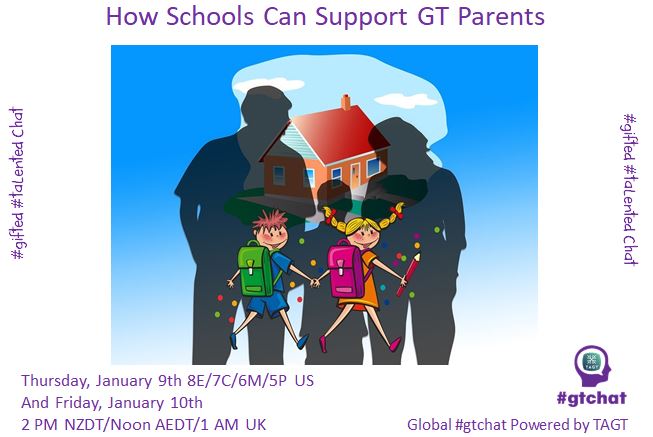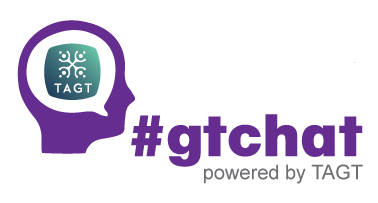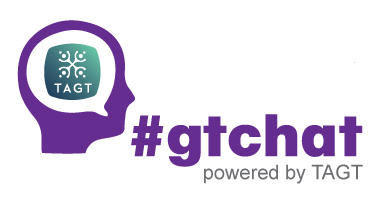The best ways to communicate with parents are those that are regular in nature ~ text/email updates, newsletters, or personal invitations to school activities or events. Sometimes, spending a little extra time at regularly scheduled school meetings (parent-teacher conferences, welcome back to school night, etc.) may be all that is needed.
What information do parents of GT students need most from schools? Parents of GT students should be made aware of all the options available for their child; the entire range of academic programs K-12. Options including social-emotional interventions, enrichment opportunities through the school and out of school, and possible accommodations for twice-exceptional students. Parents should be given an opportunity to review all assessments/test scores relating to their child and be able to participate in planning sessions for IEPs or ALPs (when available). They should be given information on ways they can support their child at home.
Schools can engage and involve parents in their gifted learner’s education by inviting them to volunteer to organize or chaperone field trips, become a coach for academic competitions, or participate in classroom activities. They can provide information sessions for parents about gifted issues, gifted education, and resources available to them from state and national organizations. They can also list information on their websites for parents about online resources, local support or advocacy groups, and upcoming conferences.
Teachers can assist parents of newly identified GT students by sharing information on the criteria used to identify their child as gifted. They may periodically ask parents if they believe their child’s needs are being met and what more they’d like to see as part of their child’s education plan. Also, teachers can encourage parents to form or participate in a parent advocacy group. Oftentimes, parents can advocate for gifted programs in ways school personnel cannot.
What should teachers know about gifted education to best support parents? The best way to support parents is to become educated about gifted education and then share that information and resources with parents. Teachers may need to seek out PD at both the local level or online and consider attending gifted conferences to learn about the latest developments/research in gifted education.
How can tensions between parents and school personnel be minimized? Open channels of communication can go a long way in easing tensions between home and school. This can prevent unnecessary surprises for all involved. Teachers can reassure parents that they have their child’s best interest at heart; becoming a trusted ally can promote positive relationships between schools and parents.
A transcript of this chat can be found at Wakelet.

Global #gtchat Powered by the Texas Association for the Gifted and Talented is a weekly chat on Twitter. Join us Thursdays at 8E/7C/6M/5P in the U.S. and Fridays at 2PM NZDT/Noon AEDT/1 AM UK to discuss current topics in the gifted community and meet experts in the field. Transcripts of our weekly chats can be found at Wakelet. Our Facebook Page provides information on the chat and news and information regarding the gifted community. Also, checkout our Pinterest Page and Playlist on YouTube.
Resources:
How Do You Teach Parents to Advocate for their Child?
10 Steps to a Better Parent-School Partnership: Pre-action, not Re-action
The Teacher-Parent Connection: Tips for Working with the Parents of a Gifted Student
14 Things Gifted Students Want Teachers to Know
Teacher’s Survival Guide: Gifted Education (book)
Tips for Teaching Gifted Students
TEMPO Issue 1 2016: Advocating for Gifted Learners (pdf)
15 Ways to Help Gifted Kids Thrive in School (pdf)
Trying to Make School Better for Gifted Kids
Disclaimer: Some resources in our resources have affiliate links.
Image courtesy of Pixabay Pixabay License
Graphic courtesy of Lisa Conrad.







